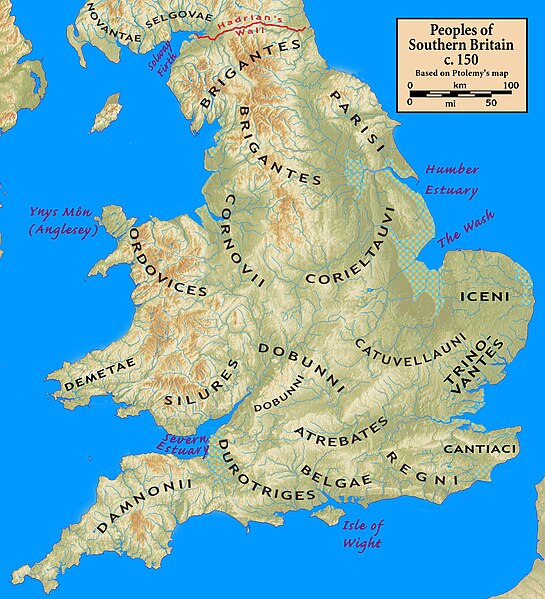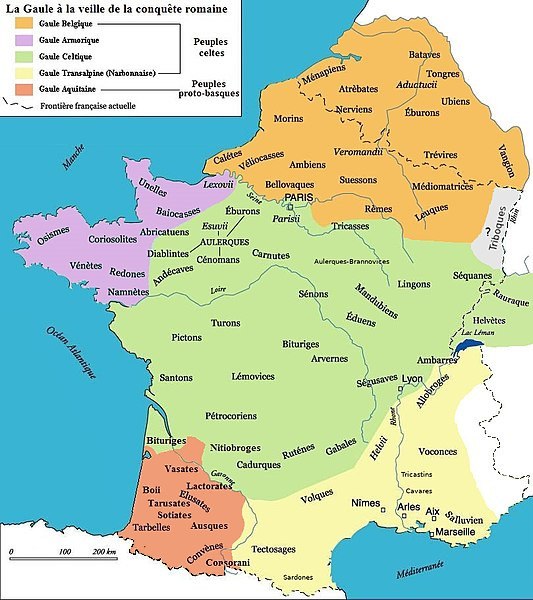Venta Belgarum, or Venta Bulgarum, was a town in the Roman province of Britannia Superior, the civitas capital of the local tribe, the Belgae, and which later became the city of Winchester.
Exposed section of the Roman foundations which lie underneath the medieval city walls
Roman mosaic found locally, now in the Winchester museum
Red Roman bricks can be seen mixed with medieval material in this wall on St. George's Street.
The Belgae were a large confederation of tribes living in northern Gaul, between the English Channel, the west bank of the Rhine, and the northern bank of the river Seine, from at least the third century BC. They were discussed in depth by Julius Caesar in his account of his wars in Gaul. Some peoples in southern Britain were also called Belgae and had apparently moved from the continent. T. F. O'Rahilly believed that some had moved further west and he equated them with the Fir Bolg in Ireland. The Roman province of Gallia Belgica was named after the continental Belgae. The term continued to be used in the region until the present day and is reflected in the name of the modern country of Belgium.
Belgae
According to Strabo: the Belgian tribes (in orange), including the Armoricani (in purple)





